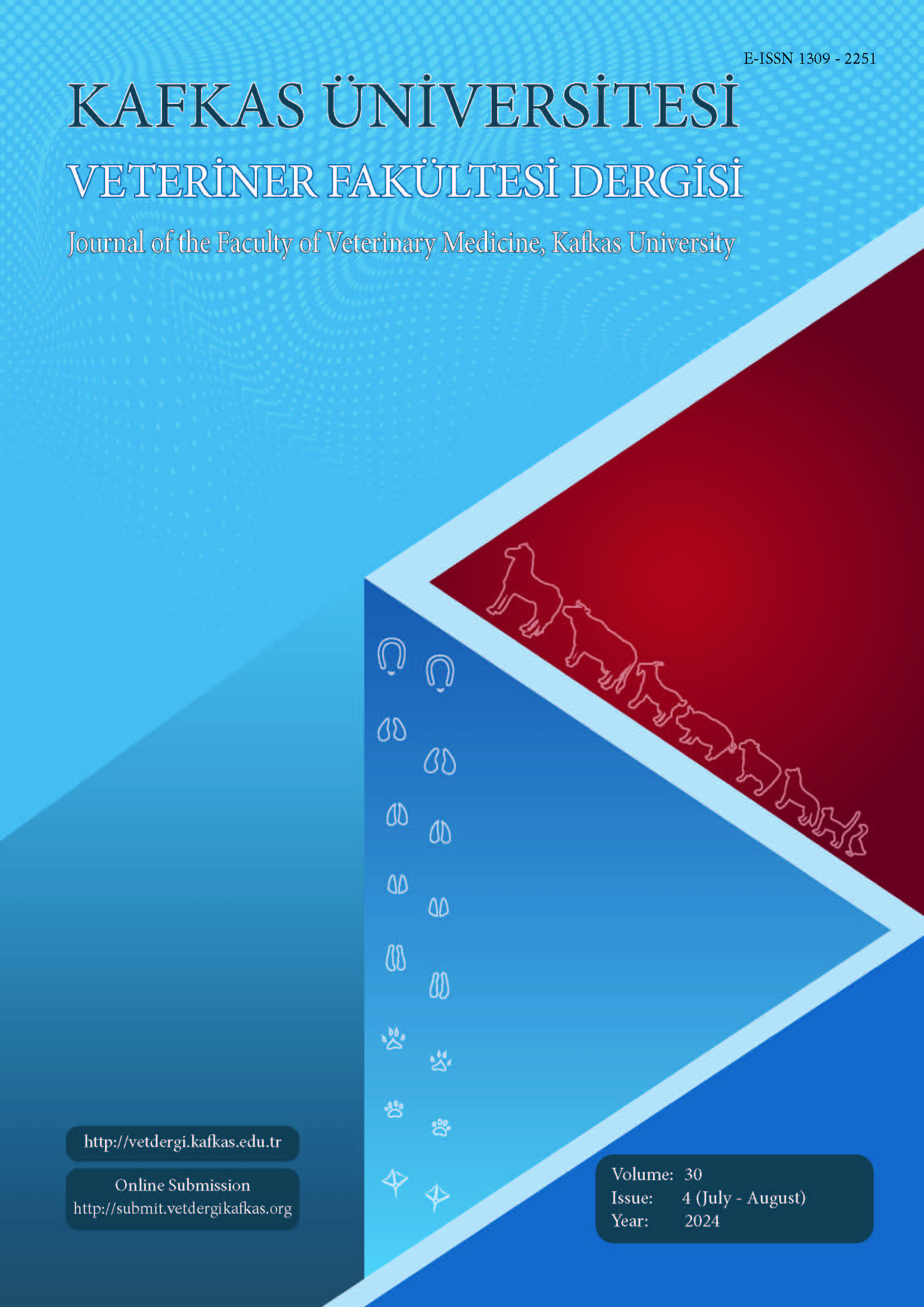
This journal is licensed under a Creative Commons Attribution-NonCommercial 4.0 International License
Kafkas Üniversitesi Veteriner Fakültesi Dergisi
2024 , Vol 30 , Issue 4
Antimicrobial and Antibiofilm Effects of Melittin and Apamin Bee Venoms from Apis mellifera L. on ESKAPE Pathogens and Cytotoxic Effects on L929 Fibroblast Cells
1Kutahya Health Sciences University, Vocational School of Tavsanlı Health Services, Medical Services and Techniques Department, TR-43300 Kütahya - TÜRKİYE2Dumlupınar University, Faculty of Science and Literature, Biochemistry Department, TR-43000 Kütahya - TÜRKİYE
3Kutahya Health Sciences University, Faculty of Engineering and Natural Sciences, Basic Sciences of Engineering Department, TR-43000 Kütahya - TÜRKİYE
4Kutahya Health Sciences University, Faculty of Medicine, of Medical Biochemistry Department, TR-43000 Kütahya - TÜRKİYE DOI : 10.9775/kvfd.2024.32125 Public health is facing a worldwide challenge due to the emergence of multiple antibiotic resistance in ESKAPE (Enterococcus faecalis, Staphylococcus aureus, Klebsiella pneumoniae, Acinetobacter baumannii, Pseudomonas aeruginosa, and Escherichia coli) infections. The natural antimicrobial nature of bee venoms makes them promising antimicrobial candidates against antibiotic-resistant pathogens. In this study, melittin and apamin bee venoms were investigated to generate novel antimicrobial agents effective against ESKAPE microorganisms. The antimicrobial and antibiofilm activities of melittin and apamin synthesized from endemic Apis mellifera L. bee venom were tested against ESKAPE microorganisms using minimal inhibition, minimal bactericidal inhibition and time-kill curve methods. The in-vitro cytotoxicity effect of melittin and apamin for L929 fibroblast cells was also examined. Synthesized melittin and apamin (0.78-600 μg/mL) were antimicrobial against ESKAPE pathogens. Time-kill curve studies confirmed the growth retardation effect and bactericidal activity of melittin and apamin. Antibiofilm studies also showed that melittin and apamin significantly (melittin 8%-82%, apamin 1.8%-78%) inhibited the biofilm formed by ESKAPE pathogens. Melittin and apamin were not cytotoxic to L929 fibroblast cells. We found that melittin and apamin have high antibacterial properties. These naturally synthesized bee venoms offer a promising powerful solution to fight various pathogens. Keywords : ESKAPE, Bee venom, Melittin, Apamin, Antimicrobial, Antibiofilm, Timekill curve










